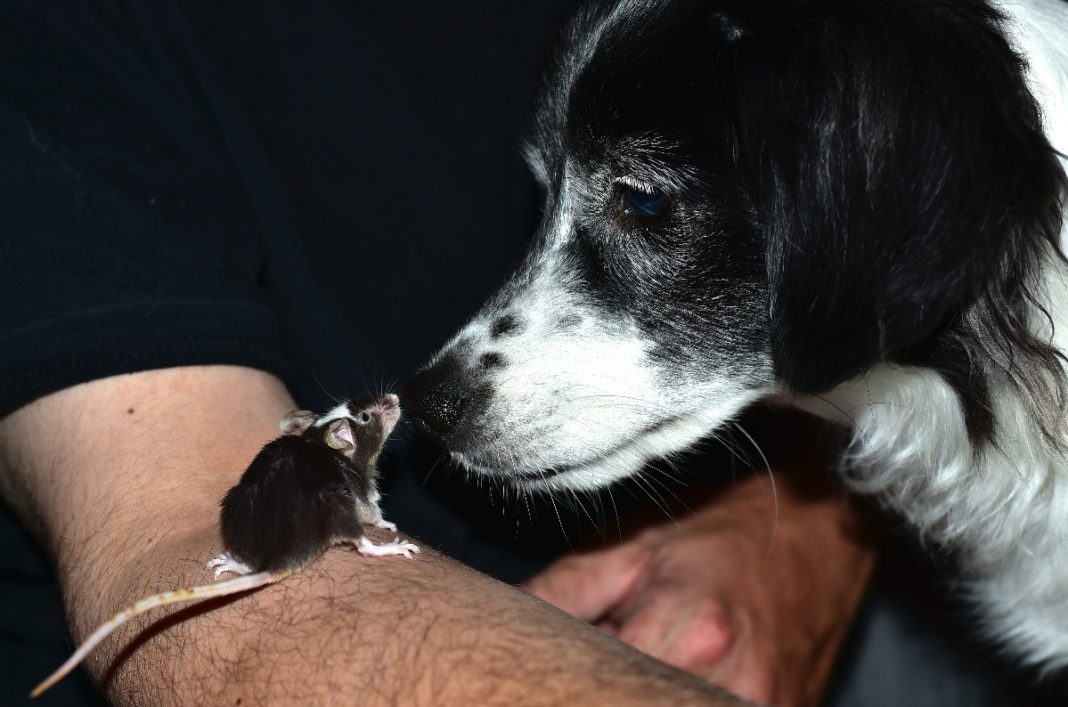Rodent infestations are a common problem faced by homeowners around the world. The search for effective and eco-friendly methods to rid of rats in your house and mice has led to the exploration of various solutions. One such option that has gained attention is utilizing the natural instincts of our furry friends – dogs. In this article, we will examine the historical background of dogs as hunters, the role they can play in keeping rodents at bay, and tips for using your dog to maintain a rodent-free home.
Understanding Your Dog’s Hunting Instincts: Dogs as Hunters
Dogs have been man’s best friend for thousands of years, and their role as hunters has played a significant part in their domestication. Certain dog breeds, such as Terriers and Dachshunds, were specifically bred for their abilities to hunt small animals like rats and mice. These breeds possess a strong prey drive, which is the instinctive urge to chase, catch, and sometimes kill smaller animals.
Why Dogs Kill Mice
Understanding the question, “Why does my dog kill mice?” is crucial in evaluating their potential role in rodent control. Dogs have evolved alongside humans as hunters and protectors, with the instinct to chase and capture prey hardwired into their genes. This natural tendency makes them well-suited for keeping rodents at bay, but not all dogs possess the same level of prey drive.
Dogs vs. Rodents: A Natural Deterrent
In general, rodents are timid creatures and avoid situations where they feel threatened. The scent, sound, and presence of a dog can be enough to deter mice and rats from entering a home. While not all dogs are active hunters, their mere presence can make a significant difference in keeping rodents away. So, to answer the question, “Are mice scared of dogs?” the evidence suggests that they can be.
Do Dogs Keep Rodents Away?
Research on the effectiveness of dogs as a rodent deterrent has produced mixed results. Some studies show that the presence of dogs can reduce the likelihood of rodent infestations, while others suggest that dogs alone are not enough to keep rodents at bay. However, when properly trained and encouraged, dogs can play a crucial role in managing a rodent problem.
Canines in Action: What Happens When a Dog Catches a Mouse?
Dogs that catch rodents may face potential risks and dangers. Rodents, such as rats and mice, can carry diseases like leptospirosis and hantavirus, which can be transmitted to dogs through bites or contact with contaminated materials. Additionally, rodents can carry fleas and ticks, which can transfer to your dog and potentially your home.
Training and Supervision
Proper training and supervision are essential for dogs who hunt rodents. This helps ensure that they are effectively catching the rodents and minimizing any risks to themselves and their owners. Dog owners should consider working with a professional dog trainer to ensure that their furry friend is equipped with the necessary skills to tackle rodents safely.
Will a Dog Kill a Rat?
The answer to the question, “Will a dog kill a rat?” depends on the individual dog and its level of prey drive. Some dogs will instinctively catch and kill rats, while others may merely chase them away. Regardless of the outcome, the presence of a dog can still serve as a deterrent to rodents.
How to Rid Your Home of Rats and Mice with the Help of Your Dog: Training Your Dog for Rodent Control
To effectively utilize your dog’s natural instincts, consider training them for rodent control. Some breeds are better suited for this task due to their heightened prey drive. For instance, Terriers, such as the Rat Terrier, Jack Russell Terrier, and West Highland White Terrier, are known for their exceptional hunting skills and tenacity. Dachshunds, originally bred to hunt badgers, also possess a strong prey drive and determination when it comes to catching small animals like rodents. Engage the services of a professional dog trainer to help teach your dog how to safely and effectively track and catch rodents, regardless of their breed. Positive reinforcement and consistency are crucial in ensuring that your dog remains focused on the task.
Maintaining a Safe and Healthy Environment
While your dog can be an effective solution for rodent problems, it is important to take steps to ensure both your pet’s safety and the cleanliness of your home. Regularly check your dog for signs of injury or illness, particularly after they have been in contact with rodents. Keep your home clean and free of potential hiding spots for rodents, such as clutter and food waste. This will not only make it easier for your dog to do their job but also reduce the likelihood of a rodent infestation in the first place.
Recognizing the Signs of a Rodent Infestation
Identifying Warning Signs Being able to recognize the signs you have mice in your home is an essential skill for homeowners. Early detection can make a significant difference in the success of your rodent control efforts. Common signs of a rodent infestation include:
- Droppings
- Gnaw marks on furniture, walls, or food packaging
- Noises in the walls or attic, particularly at night
- Tracks or footprints in dusty areas
- Unusual pet behavior, such as dogs sniffing or pawing at areas where rodents may be hiding
Taking Action
If you suspect a rodent infestation, it’s important to take action quickly. While your dog can be a valuable ally in the battle against rodents, there are times when professional help is needed. If the infestation is severe or if you are unsure of the best course of action, contact a professional pest control service for guidance and assistance.
Conclusion
While dogs may not be a one-size-fits-all solution to rodent problems, their natural instincts and abilities can be a valuable asset in keeping your home free of mice and rats. By understanding the historical background of dogs as hunters, recognizing the signs of a rodent infestation, and taking steps to ensure a safe and healthy environment for both your dog and your family, you can work together with your furry friend to maintain a rodent-free home. Remember to be a responsible pet owner and seek professional help when needed, as both you and your dog deserve a safe and healthy living environment.

